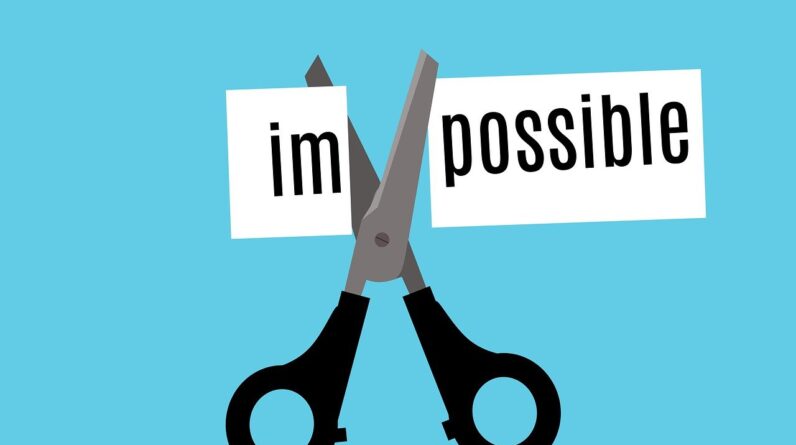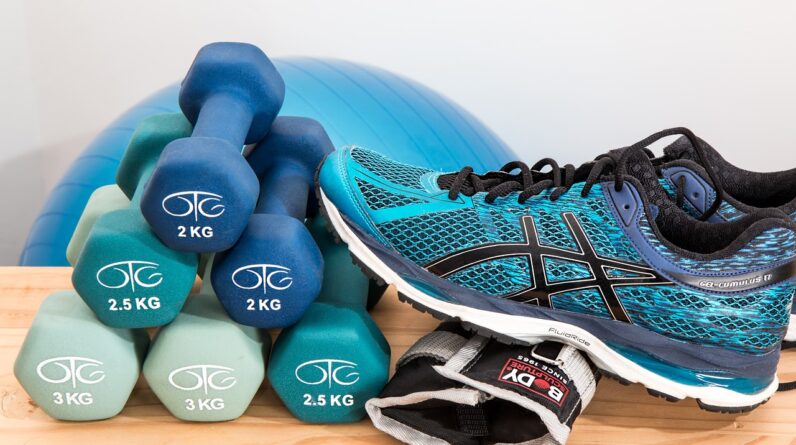
**Affiliate Disclosure**
Please note that some of the links on this site are affiliate links, and at no additional cost to you, we may earn a commission if you decide to make a purchase after clicking through the link. Any commission we make is income for the work put into supplying the information presented on this website.
The Truth About Six-Pack Abs
If you’re like most people, getting six-pack abs is high on your fitness wish list. Whether it’s to improve your looks or boost your self-esteem, a set of lean, defined muscles is the epitome of a fit and healthy body.
However, the pursuit of abs isn’t always straightforward. You can easily be deceived by misleading advertisements and marketing claims.
What is a Six-Pack?

A six-pack is a sculpted layer of abdominal muscle that extends from your rib cage to your pelvis. It’s called a “six-pack” because it’s made up of three segmentations of connective tissue that lie within a single muscle — the rectus abdominis.
While most people have visible rectus abdominis muscles, some may have external oblique muscles, which wrap around the sides of the abdomen. That’s because a person’s abs aren’t always defined by just one muscle, and the number of abdominal bands that people have depends on their genetics.
The best way to build abs is through a combination of strength training and cardio. It’s also crucial to eat healthily and reduce your body fat percentage.
Despite the hype, diet is more important than the amount of time and money you spend in the gym, says fitness expert Natalie Jill. The best results from core training come from using compound movements, which call on full-body stability and power, she says.
A good core workout will strengthen your entire torso, which is essential for maintaining healthy posture and improving athletic performance, she adds. Plus, it will help you avoid injuries and lower back pain.
When it comes to getting six-pack abs, most fitness experts recommend sticking to a program that’s comprised of both strength and cardio exercises. You’ll also need to consume a diet high in protein, complex carbohydrates, and fats.
While it’s possible to train your abs year-round to build them, you won’t see them until you’ve lost a significant amount of body fat.
What are the Best Exercises for a Six-Pack?
There is no doubt that a strong core can help you lift more weight, improve your sports performance and even eliminate back pain. But, as any strength coach will tell you, core work isn’t the be-all and end-all of your abs workouts.
The best way to ensure you get your six-pack is through a combination of diet, exercise and determination. It doesn’t matter what your genetics are or if you’ve got a body fat percentage of 16-20% or 10-14% – if you follow a strict diet and incorporate the right exercises, you’ll be able to carve out those coveted abs – whether you’re male or female!
But before you get started with your abs workout, make sure you’re getting enough cardio to burn the fat. There’s no better way to do this than by incorporating at least three hours of cardio and high-intensity interval training (HIIT) into your week.
A great way to build up your ab muscles is with a range of crunches, which target the rectus abdominis and external obliques. Simply lie on your back on an exercise mat and bend your knees so that your feet are flat on the floor.
Once you’ve completed 12 reps on the left side, do the same for your right. You can pad your backside with a pillow or use your hands to make the movement more comfortable.
Another effective exercise for sculpting your abs is the reverse crunch, which works your lower abs as well as your upper abs. To start, lie on your back with your arms alongside your hips. Tilt your pelvis upward and bring your legs up to a 90-degree angle, bending at the knees.
What Are the Best Diets For a Six-Pack?
Having defined abs requires a combination of reducing excess body fat and building muscle. A proper diet is essential to these goals. It should include foods that boost metabolism, encourage body fat reduction, and maintain a feeling of fullness.
A high-protein diet will help build muscles and support the growth of lean muscle tissue. It will also provide energy to your muscles, speeding up the recovery process after a workout and minimizing muscle soreness.
It’s important to add in plenty of healthy fats into your diet. This includes omega-3 fatty acids found in foods like salmon and flaxseed. These healthy fats can help lower inflammation, which in turn supports the development of your abs.
Carbohydrates are also essential to the development of your abs, but only if you consume them in moderation. You can get your carbs from whole grains, fruits and vegetables.
You’ll also want to avoid processed and outside foods that have a lot of sodium. Excess salt can impede the development of your abs, so it’s best to cut down on this food group.
A low-sodium diet can improve your abs, because it helps control blood sugar and stabilize insulin levels in the body. It can also keep your kidneys functioning properly and reduce bloating, which can make your abs more visible.
A low-sodium diet can be especially helpful for people who are trying to lose weight, as it allows your body to better absorb nutrients, such as vitamins and minerals. It’s also beneficial for anyone who is pregnant or nursing, as it can help regulate the production of breast milk. The amount of sodium in your diet should be 500 milligrams or less per day.
What Are the Best Supplements for a Six-Pack?
Having six-pack abs is one of the most attractive physiques, but it’s also the hardest to achieve. It takes dedication and commitment to eat well, exercise multiple times a week, sleep well, and stay hydrated.
Many people mistakenly believe that you cannot have six-pack abs without doing exercises and taking supplements. But the truth is, it’s not impossible to get a ripped body and chiselled abs, as long as you stick with a diet and exercise routine that helps you reach your goals.

It is very important to take a good quality protein supplement to gain muscle mass and burn fat. A whey protein isolate or concentrate is a great option as it is fast-acting, causes muscle growth and recovery and is low in carbohydrates and fats.
A good pre-workout supplement is also a must, as it provides energy to your muscles for high-intensity workouts. These contain ingredients such as creatine monohydrate, which is a natural compound found in muscle cells that aids in high-intensity workouts by increasing your energy levels and allowing you to train harder.
Another great way to speed up your progress is by taking a caffeine supplement before and after your workouts. Caffeine is known to promote fat burning and accelerate the metabolism.
Green tea is also an excellent supplement for a six-pack. It contains a blend of antioxidants and amino acids that help to boost your energy and reduce inflammation.
The best supplements for a six-pack are those that have been proven to work effectively in combination with diet and exercise. Having a top-notch nutrition plan and exercise routine are essential for getting results, but supplements can make the journey that much more enjoyable.
What are the Best Workouts for a Six-Pack?
There’s no one “right” way to get six-pack abs. The exact shape and development of your abdominal muscles will depend on your body fat percentage, diet, exercise habits and genetics.
However, training your core regularly is an essential part of getting the coveted abs. It will not only help you to tone the midsection, but it’s also a great way to ensure that you aren’t injured during workouts.

The core is the group of muscles that connect the spine to the legs and shoulders. It’s made up of the rectus abdominis and external obliques.
Your core is what holds your back in place and helps to maintain an upright posture. So if you want to have a strong and well-defined midsection, working your core with exercises like planks and crunches is important.
To really make the most of your time in the gym, focus on compound lifts – those that use multiple muscle groups at once, such as squats, overhead presses and deadlifts. These will build strength all over the body, and you’ll see results in your abs too if you train hard enough.







